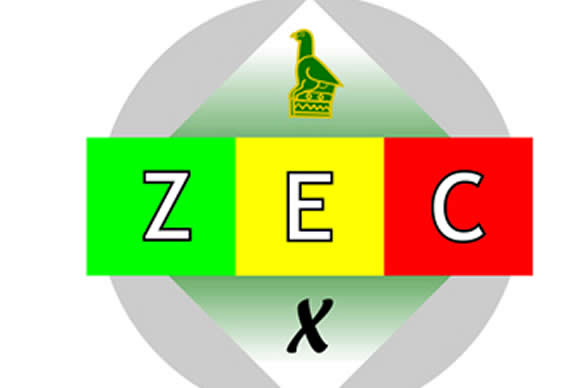
LAST Wednesday, the Zimbabwe Elections Support Network (Zesn) hosted a virtual public meeting to discuss the topic The Suspension of By- Elections in Zimbabwe: A Necessity or an Affront on Constitutional Electoral Democracy?
Guest Column:Zesn
The panellists included high-level constitutional and electoral experts namely Pearl Matibe, Alex Magaisa, Ellen Shiriyedenga, Sithabile Dewa and Advocate Eric Matinenga.
The meeting interrogated the legality of the indefinite suspension of by- elections and the implications of such a development on constitutional electoral democracy.
Statutory Instrument 225A was instituted to suspend elections in Zimbabwe for an indefinite period, citing the need to protect citizens and election officials from the COVID-19 pandemic.
This came after the Zimbabwe Electoral Commission (Zec) had developed and published its COVID-19 policy on electoral activities which was also followed by an announcement on tentative dates for the by-elections.
Panellists were in agreement that the suspension of the by-elections is illegal since it is unconstitutional and a breach of the law.
Magaisa noted that the Constitution is the supreme law of the country, and any law that is inconsistent with it is void to the extent of its inconsistencies. Section 158(3) of the Constitution states that polling in by-elections to fill vacancies in Parliament and local authorities must take place within 90 days after the vacancies occurred, unless the vacancies occur within nine months before a general election.
- Chamisa under fire over US$120K donation
- Mavhunga puts DeMbare into Chibuku quarterfinals
- Pension funds bet on Cabora Bassa oilfields
- Councils defy govt fire tender directive
Keep Reading
It was also noted that SI 225A is a regulation which is sub-legislation, therefore, cannot be used to make any amendments to the Constitution, neither can it be used to suppress fundamental freedoms and rights.
Shiriyedenga noted that Statutory Instrument 225A of 2020 stifles democracy, and hinders the rights of Zimbabweans to express themselves politically.
She cited the example of a ward in Chiredzi which has had no representative since January 2020. This, according to her, is an affront to democracy as it interferes with the right of the people to be represented.
Panellists also cited Section 134 of the Constitution which states that statutory instruments must not infringe or limit any of the rights and freedoms set out in the Declaration of Rights.
Asked about the implications of the Statutory Instrument on the independence of the Zec, Magaisa was of the opinion that this piece of legislation has further compromised the effectiveness of the election management body.
He blamed the Zec for being inconsistent with its mandate at times, which has opened it to mistrust and ridicule. He noted that the Zec must be in a position to safeguard the electoral space and should be more professional and impartial.
Magaisa applauded Zec for coming up with the COVID-19 regulations to enable the conduct of elections, and then expressed disappointment with it for the subsequent regression from that progress by supporting the Statutory Instrument 225A.
He noted that this was a gross disregard of the Constitution and demonstrated double standards in the application of rules. As a referee, Zec should have played by the rules of the Constitution.
The meeting also discussed the various inconsistencies in policy and proclamations by authorities on the suspension of by elections, including legislators. These inconsistencies were blamed on a bad culture of governance.
Another panellist, Matinenga, noted that it is the government as an institution that has breached the Constitution and not individuals, as these individuals act within the parameters and context of the prevailing political culture.
It was observed that there is a need for greater independence of our institutions, which are largely weak but occupied by strong individuals. Asked about the implications of the suspension of by-elections on the women constituencies, Dewa observed that these are far-reaching.
She noted that this decision, compounded by the illegal recalls of some female representatives, further limits the opportunities for women to participate in elections. This is because local elections are often an entry point for many women into politics.
The meeting also noted that in Zimbabwe it is now business as usual in all other facets of life including economic activities, except for elections. Panellists cited examples of other countries like Malawi, South Korea, Burundi, and Singapore that had elections in the recent past and others like South Africa and Tanzania that are scheduled to hold elections in the near future.
They observed that there is nothing peculiar about Zimbabwe which prevents it from having elections like other jurisdictions.
Zimbabwe should learn how other nations have been able to conduct elections successfully in the COVID-19 era, and should also put to test the Zec regulations on conducting elections during COVID-19, instead of just dismissing them before they are tested.
Panellists were in agreement that although COVID-19 is a public health emergency, COVID-19 and elections must not be mutually exclusive.
When the discussion was opened to the floor, participants concurred with the panellists that there are a lot of inconsistencies regarding the conduct of by-elections in Zimbabwe. Participants called for adherence to the rule of law and consistency in rhetoric and action.
They also bemoaned the government’s lack of sincerity in suspending the elections citing COVID-19 as the suspension has not been followed up by COVID-19 conscious behaviour. Participants further called for the independence and integrity of electoral and institutions supporting democracy, particularly the Zec and Parliament.











